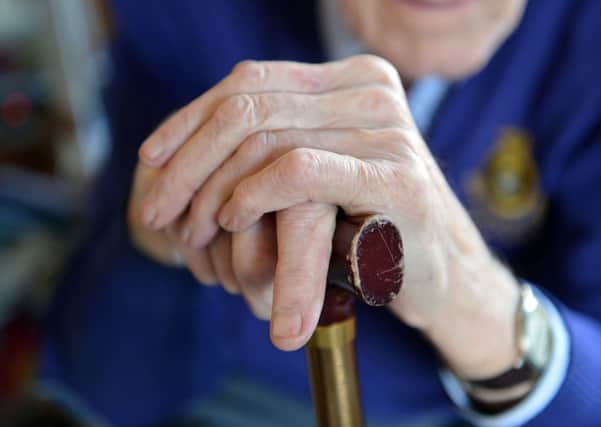Care services could be plunged into crisis if workers lose rights


Analysis by older people’s charity Independent Age and the International Longevity Centre-UK found that almost 84,000 European Economic Area (EEA) migrants are part of the country’s social care workforce and around 78,000 of them do not have British citizenship.
As the Government prepares to begin negotiations around immigration policy following the vote to leave the EU, the report said it would be “almost impossible to close the already sizable social care workforce gap” if thousands of EEA migrants lost the right to work here.
Advertisement
Hide AdAdvertisement
Hide AdIt added that the risk to care services had been made worse by the failure to recruit enough British born-workers to meet the demands of an ageing population.
Simon Bottery, director of policy at Independent Age, said: “Care services for elderly and disabled people have come to rely on migrant workers, especially from the European Union, so the consequences could be severe if they are unable to work here in future.”
In Yorkshire there are around 140,000 social care workers, of which approximately 11,200 do not have British citizenship.
Up to 4,000 of those social care workers without British citizenship are EEA migrants.
Advertisement
Hide AdAdvertisement
Hide AdMr Bottery said: “As with the NHS, we need to secure the right for these essential workers to remain in the UK.
“But in the longer term we have to recruit more British born workers to social care and that means making sure that they are well paid, well trained and secure in their jobs. That can’t happen without a commitment to fund the care sector properly.”
Attracting British born workers has been a key target for Anchor, which has care homes throughout England including 31 in Yorkshire.
Its HR director, Sue Ingrouille, said: “Only three per cent of our care home workforce is from the EU, but Brexit could provide a big challenge for other care providers. We are focusing much more on home-grown talent, such as apprentices and graduates.”
Advertisement
Hide AdAdvertisement
Hide AdShe said it was important for the government to consider the role of EEA migrant workers in the sector when planning policy.
“The government and care sector should be focusing on encouraging more talented people to join the sector whether it is from the UK or abroad,” she added.
Anchor’s own research suggests there will be a 718,000 shortfall of carers nationally by 2025, while figures in today’s report estimate the workforce gap could reach 1.1m by 2037.
The report said the rate at which EEA migrants have been filling vacancies is accelerating as immigration rules affecting non-EEA workers continue to place limits on unskilled labour.
Advertisement
Hide AdAdvertisement
Hide AdIt called for immigration policy to reflect the needs of those who rely on social care; an increase in the attractiveness of the social care sector to British born workers, and a fundamental look at how care is funded and delivered.
But the Government refused to be drawn into setting out a position on immigration.
A spokesman said: “The Prime Minister has been clear that she wants to protect the status of EU nationals already living here, and the only circumstances in which that wouldn’t be possible is if British citizens’ rights in European member states were not protected in return. At every step of these negotiations we will work to ensure the best possible outcome for the British people.”